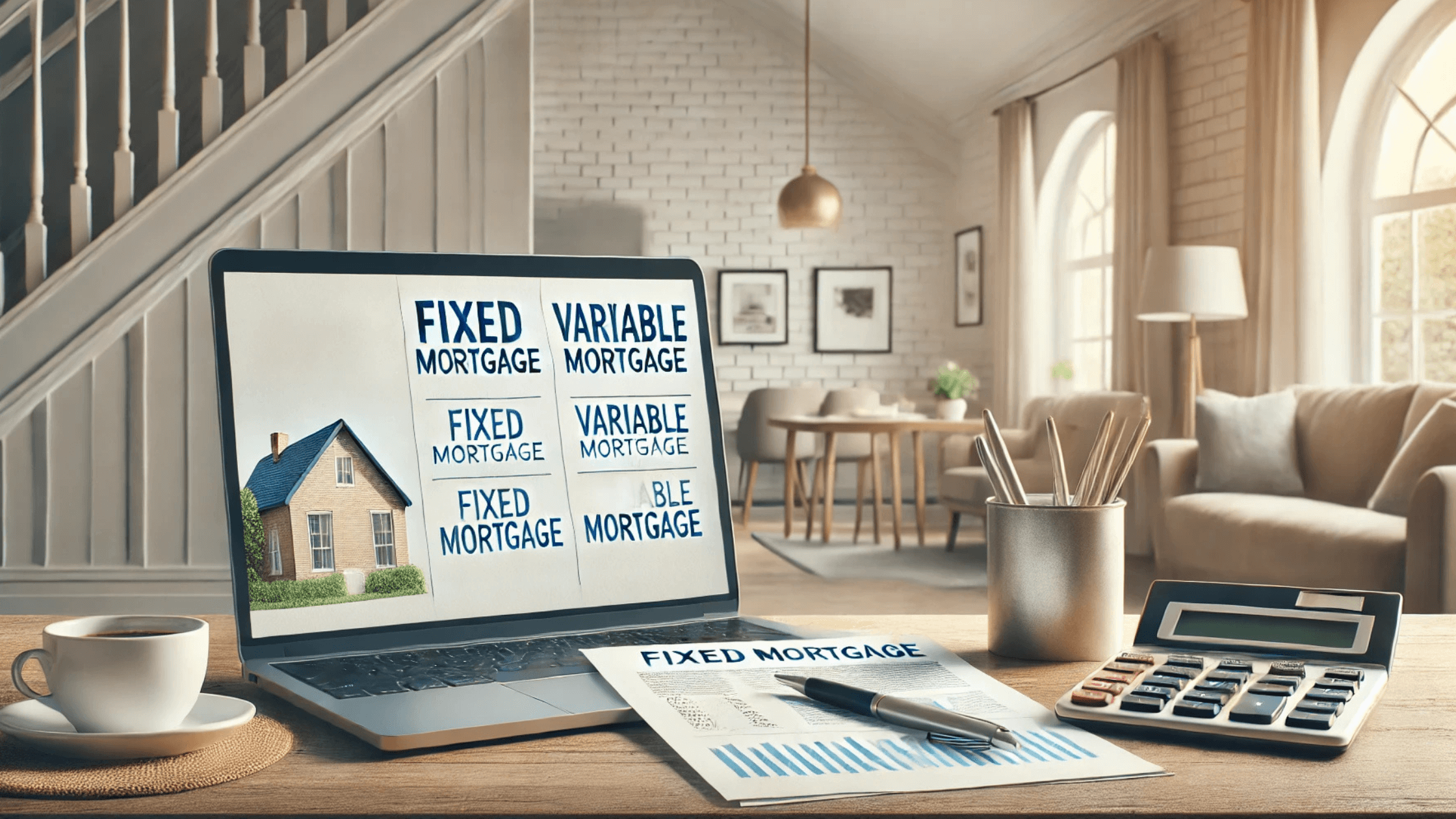Deciding between a fixed or variable mortgage is a critical step when financing your home. Each option has unique benefits and potential drawbacks, depending on your financial situation and market conditions. This guide will help you understand the difference between a fixed mortgage and a variable mortgage, and answer common questions like “Should I choose a fixed or variable rate mortgage?” or “Which is better: fixed or variable rate mortgage?”
By understanding these choices, you can make a decision that suits your finances, whether you need a first time buyer mortgage or need to remortgage your existing home.
What is a Fixed Rate Mortgage?
A fixed mortgage offers stability and predictability. With a fixed interest rate, your monthly repayments stay consistent for an agreed term. In Ireland today it is possible to get fixed rate terms between 1 to 10 years and with one lender even a 30 year fixed rate term. This consistency makes fixed vs variable mortgages ideal for those who prefer predictable payments and want protection from rising interest rates.
What is a Variable Rate Mortgage?
A variable mortgage differs in that the interest rate on a variable mortgage fluctuates over time. Variable mortgage rates are influenced by changes in market rates like the Euribor and European Central Bank rates. However ultimately mortgage lenders in Ireland set their own variable rates and move rates up or down in line with the profits they require.
How do banks make profit from variable mortgages?
Banks normally borrow themselves to fund mortgages or use savings they hold on deposit. The profit margin for banks is the difference between the variable mortgage rate they charge you and the cost of funds that they borrow or hold on deposit. While this means monthly repayments can decrease when market rates fall, they may also increase if market rates rise. This adds uncertainty for you as a variable mortgage rate borrower.
Key Differences Between Fixed and Variable Mortgages
Understanding the difference between fixed mortgage and variable is crucial when deciding between the two options:
- Interest Rate Stability: A fixed rate guarantees steady repayments, while a variable rate may change.
- Flexibility: Variable mortgages often allow for penalty-free overpayments, unlike fixed mortgages, which may charge fees for early repayment.
- Potential Savings: Variable rates can save money if interest rates drop, but fixed rates protect you against rate hikes.
These differences highlight the pros and cons of fixed vs variable interest rates, helping you determine the right fit for you.
Factors to Consider When Choosing Between Fixed or Variable Mortgages
When deciding whether fixed or variable mortgage suits your needs, consider these factors:
- Your Finances: If your budget can’t accommodate fluctuating repayments, a fixed mortgage is a safer option for you.
- Market Conditions: If interest rates are low but expected to rise, fixing your rate might save you money. On the other hand, if rates are likely to drop, a variable option might suit you better.
- Future Plans: Are you likely to move home or refinance soon? Variable mortgages may offer more flexibility and avoid fixed rate penalties.
These considerations can answer whether “is it better to have a fixed or variable loan” for your specific situation.
Which is Better: Fixed or Variable Rate Mortgage?
When comparing fixed vs variable mortgage, there is no one size fits all. The right choice depends on your own priorities:
- Choose a fixed mortgage if you value predictable payments and protection from rising interest rates.
- Opt for a variable mortgage if you’re comfortable with risk and want the potential to save if rates fall.
Asking yourself “is a fixed or variable mortgage better for me” comes down to understanding your financial goals and risk tolerance.
Split Rate Mortgages: A Hybrid Between Fixed and Variable Mortgages
A split rate mortgage offers the best of both worlds by dividing your loan into part fixed and part variable. You could for example have 50% of your mortgage fixed and 50% variable. This allows you to enjoy the stability of a fixed rate while also benefiting from the potential savings with a variable rate. It can also suit homeowners considering later options to unlock equity in your home. For those who can’t decide “should I get fixed or variable mortgage,” this hybrid option can provide balance and flexibility.
Let MortgageLine Help You Make the Right Choice!
Choosing between a fixed variable mortgage is easier with expert guidance. At MortgageLine, we assess your financial goals and help you determine whether a fixed vs variable interest rate suits you best. Our team makes it easy for you to find the ideal mortgage, whether fixed, variable, or split.
With access to multiple lenders, we provide tailored advice to help you answer questions like “is it better to have a fixed or variable loan?” or “which is better: fixed or variable rate mortgage?” Make your mortgage application online today and let us see which is the best option for you and how much you can borrow.
FAQs: Fixed or Variable Mortgage
Should I choose fixed or variable rate mortgage?
This depends on your financial situation. If you value consistent payments, a fixed mortgage is better. If you’re comfortable with rate fluctuations and want potential savings, go for a variable rate.
Is it better to have a fixed or variable loan?
The answer depends on market conditions and your financial needs. Fixed loans offer predictability, while variable loans provide flexibility and potential savings.
Can I switch from fixed to variable or vice versa?
Yes, many lenders allow you to switch between fixed and variable rates, though fees may apply if breaking out of a fixed mortgage rate. A broker like MortgageLine can guide you.
By comparing fixed vs variable mortgages, understanding your priorities, and seeking expert advice, you can make an informed decision about the type of mortgage that’s right for you. Get help from a mortgage broker. MortgageLine is here to simplify the process and ensure you get the best mortgage for your needs.






